Extractivism Talks #05:
Development and Extractivism: Challenges in the 21st Century
The Event
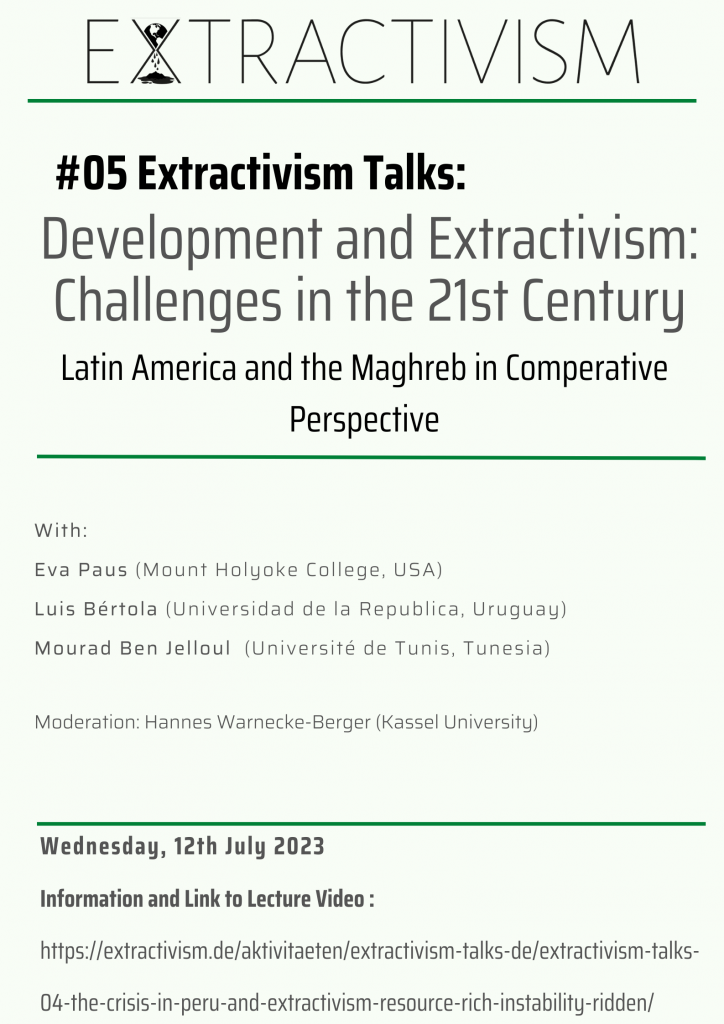
Latin America and the Maghreb are confronted with enormous challenges. On the one hand, a new boom in “green” raw materials such as hydrogen, copper, or lithium is already looming. Against the background of the decarbonization of the global economy and the current war in Ukraine, this trend seems to intensify. On the other hand, new policies must address old and current pressing realities, such as the enormous social inequality in the regions.
Both regions have large deposits of raw materials crucial for global sustainability strategies. Latin America also produces a significant share of the world’s staple food. However, both regions also have significant deposits and exploitation shares of fossil fuels such as oil or gas. The risk of deepening extractivism, whether fossil or green, i.e., a development model based on commodity exports, is more relevant than ever. One of the main challenges of the regions today is to connect this extractivism with the requirements of sustainability and use it as a transmission belt for a social-ecological transformation.
Against this backdrop, Extractivism Talks #5 discusses current challenges, opportunities, and limitations of extractivism and sustainability in Latin America and the Maghreb, drawing conclusions for other world regions and methodological lessons for cross-area research.
The Discussants
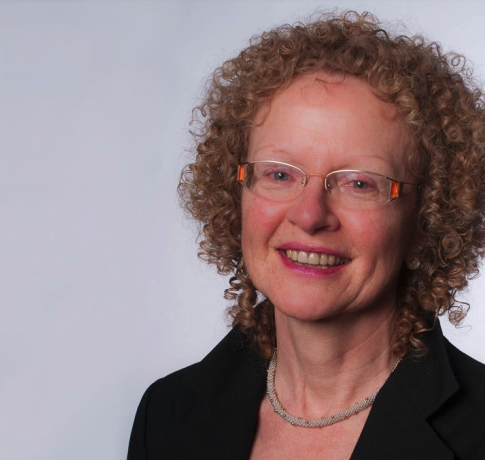
Eva Paus (Mount Holyoke College, USA)
Eva Paus is a Professor of Economics at the Ford Foundation at Mount Holyoke College, USA. She is an expert on development and globalisation issues, focusing on Latin America. Eva Paus holds a Ph.D. in economics from the University of Pittsburgh, USA. She has been a visiting professor at institutions in Germany, Colombia, Costa Rica, Ireland, Peru, and South Korea and has consulted for ECLAC, ILO, UNIDO and UNDP. Her current research focuses on escaping the middle-income trap, its drivers of innovation, industrial policies, and the role of modern services and agribusiness in structural transformation. She is the author and editor of seven books, more than fifty articles, and other publications.
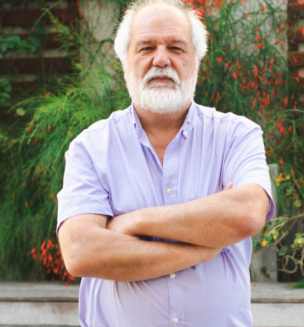
Luis Bértola (Universidad de la Republica, Uruguay)
Luis Bértola holds a PhD in Economic History from the University of Gothenburg, Sweden. He is a History, Economics and Social Development Professor at the Faculty of Social Sciences at the University of the Republic, Uruguay. In addition, he was Dean of the Faculty of Social Sciences and Pro-Rector of Research at the University of the Republic, as well as the Director of the National Agency for Innovation and Research (ANII). Moreover, he has given seminars and postgraduate courses in more than forty American and European universities. Finally, he has been a consultant for the IDB, ECLAC, ILO, OPP, MIEM, and IDM. Today, he researches Latin America’s comparative economic history, focusing on endowments, institutions and technical change, and South America’s sustainable, productive development policies.
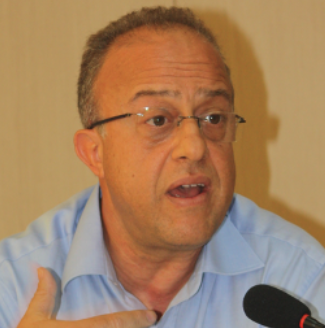
Mourad Ben Jelloul (Université de Tunis, Tunesia)
Mourad Ben Jelloul is a professor of geography at the Faculty of Humanities and Social Sciences at the University of Tunis. He specialises in spatial planning and territorial governance, with a Ph.D. in geography and spatial planning from the Faculty of Law, Economic and Social Sciences of the University François Rabelais in France. Moreover, he has a habilitation in geography from the Faculty of Humanities and Social Sciences of the University of Tunis. Finally, he heads the Research Laboratory “Governance and Territorial Development” and is editor-in-chief of the Tunisian Journal of Geography (RTG).
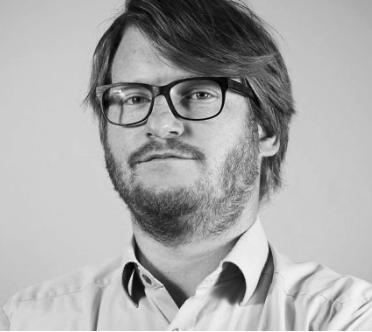
Dr. Hannes Warnecke-Berger (University of Kassel)
Dr. Hannes Warnecke-Berger is a senior researcher at the University of Kassel and Extractivism’s project coordinator. He will moderate the discussion.